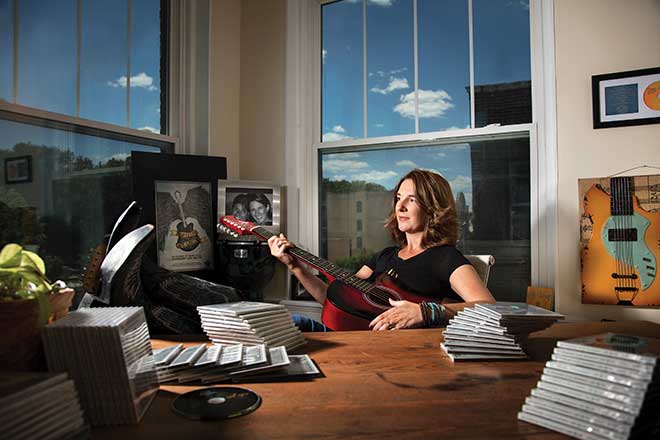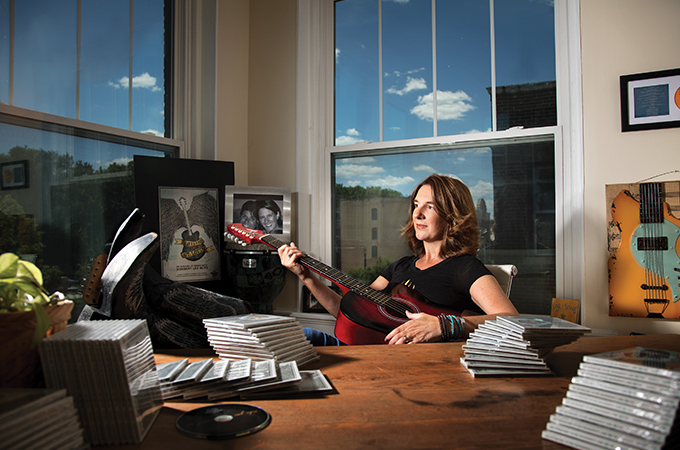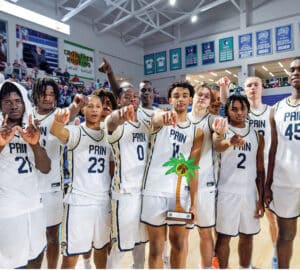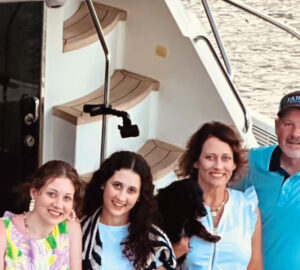angel band project: To break the silence surrounding sexual violence, to inspire people to engage with this issue through the transformative power of music, and to provide healing for survivors and foster a society that’s willing to listen and change
meet volunteer/executive director rachel ebeling of university city
How long have you been a volunteer?
I founded the organization as a 501(c)(3) with Jean Purcell in 2012, but we had done work with this cause for a few years prior.
What interested you in this particular cause?
On July 19, 2009, I lost one of my lifelong best friends, Teresa Butz. She had moved to Seattle, was in a great relationship with her partner, Jennifer, and was planning their wedding for September of that year. One night, they left a window open, and a stranger crawled through and proceeded to rape and stab them both repeatedly. Teresa passed away that night, and Jennifer survived.
It was all so shocking. A journalist covering the trial actually won a Pulitzer Prize for his work, and wrote a book, While the City Slept, about Jennifer’s strength as a witness.
Music was always a huge part of who Teresa was. Her entire family is gifted; her brother is a two-time Tony Award winner, and her partner studied at Boston Conservatory. Jean and I were both so taken with the music at Teresa’s service, we decided to create a benefit album to memorialize her. We gave all the funds to a national initiative, The Voices and Faces Project, whose mission is to create a national network of victims of sexual assault.
It was just something cathartic for us to do, but we started getting inquiries from agencies asking us to speak at conventions. We found our healing through music, and that’s when we realized we had a bigger mission to fulfill. We became an official nonprofit and expanded to use music therapy as a healing tool for survivors of sexual and intimate partner violence, and to break the silence surrounding the issue.
Explain what the organization does.
Angel Band Project hires board-certified music therapists to go into places like crisis counseling agencies, safe houses and shelters for six-week therapy workshops. We’re currently at seven agencies locally and have expanded to Seattle and New York City.
It’s growing, and it’s working. We served 93 victims last year compared to 65 the year before. It’s an unlikely gift we were given, to find this mechanism for helping these victims heal. Music connects everyone organically. If you’re grieving, it’s such a comfort. Women walk in not making eye contact, and six weeks later, they are so confident. They are able to express their stories through music, and it’s been really powerful.
I oversee program management and get out to engage the community. We operate mostly with volunteers, but we’re on a trend of expansion, so I became an official executive director a couple of years ago.
If you could do anything for the organization, what would it be?
I would love to see it grow in Missouri, outside the St. Louis region. There is a need, but we have to have the infrastructure to support that. I want to reach more survivors. Jean and I had a choice to make when Teresa passed: either get angry and not believe there is any goodness in the world, or do something so that she didn’t die in vain. Her spirit is in this project, and I’m glad we can provide some comfort through our work.
in the words of Angel Band Project: “Rachel works tirelessly to help erase the stigma of sexual violence and help women find a voice. This is not just a job, it’s her life’s calling.”
Photo: Colin Miller of Strauss Peyton Photography









